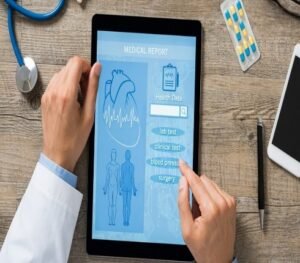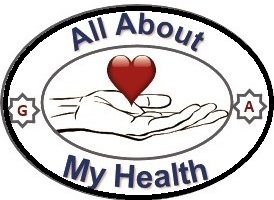Essential Health Screenings for Every Age Group
In the ever-evolving landscape of healthcare, understanding which medical screenings are essential for your age is crucial for maintaining optimal health. Regular screenings not only help in early detection of potential health issues but also empower individuals to make informed decisions about their well-being. This blog aims to provide a comprehensive guide on essential medical screenings tailored to different age demographics, highlighting key screenings, their importance, and current recommendations.
Essential Medical Screenings for Young Adults (Ages 18-29)
In your 20s, focusing on building a strong foundation for your health is crucial. Key screenings during this decade include:
- Blood Pressure Check: Monitoring your blood pressure helps detect early signs of hypertension.
- Cholesterol Test: Evaluating your cholesterol levels can provide insights into heart health.
- Skin Examination: Regular skin checks help in early detection of potential skin cancers.
General Health Check-Ups
Sexual Health Screenings
Sexual health is a significant concern for young adults. The Centers for Disease Control and Prevention (CDC) recommends annual screenings for sexually transmitted infections (STIs) for sexually active individuals under 25. Early detection and treatment can prevent serious health complications, including infertility (2). Additionally, discussions about birth control methods and reproductive health are essential during these visits.
Mental Health Screenings
Mental health is a growing concern among young adults, with the National Institute of Mental Health reporting that 31.9% of U.S. adults experience anxiety disorders (3). Regular mental health screenings can help identify issues like anxiety and depression early on, enabling timely interventions. Healthcare providers should incorporate mental health assessments into routine visits.
Preventive Measures
Vaccinations are another critical aspect of preventive care for young adults. The CDC recommends vaccinations like the HPV vaccine, which can prevent certain cancers, and the annual flu vaccine to protect against seasonal influenza (4). Furthermore, lifestyle assessments focusing on nutrition, exercise, and stress management can help establish healthy habits that last a lifetime.
Essential Medical Screenings for Adults (Ages 30-39)
As you transition into your 30s, additional screenings become pertinent. Consider the following:
- Full Lipid Profile: A comprehensive lipid profile assesses various cholesterol components in your blood.
- BMI and Waist Measurement: Tracking your body mass index and waist circumference aids in monitoring weight-related health risks.
- Eye Examination: Regular eye exams help in detecting vision issues and eye diseases early on.

Regular Physical Examinations
As individuals enter their 30s, the importance of regular physical exams cannot be overstated. The U.S. Preventive Services Task Force (USPSTF) suggests adults in this age group receive check-ups every one to three years, depending on health status (5). Key metrics to monitor include blood pressure, cholesterol, and body mass index (BMI).
Cancer Screenings
Cancer screenings become increasingly important in your 30s. The American Cancer Society recommends women begin annual mammograms at age 40, while Pap smears should start at 21 (6). For men, discussions about testicular cancer and prostate health should begin around this age. Regular self-exams and awareness of family history can also aid in early detection.
Diabetes and Heart Disease Risk Assessment
With rising obesity rates, screenings for diabetes and cardiovascular health are crucial in this age group. The CDC advises adults with risk factors like obesity or a family history of diabetes to undergo screening tests (7). Maintaining a healthy lifestyle through diet and exercise can significantly reduce these risks.
Mental Health and Stress Management
Mental health remains a priority, as stress and anxiety can impact overall well-being. The World Health Organization (WHO) emphasizes the need for stress management techniques, including mindfulness and therapy (8). Regular mental health screenings should be incorporated into routine check-ups, allowing for proactive management of mental health issues.
Essential Medical Screenings for Middle-Aged Adults (Ages 40-49) 
Entering your 40s calls for a more in-depth approach to health screenings. Key evaluations include:
- Blood Glucose Testing: Screening for diabetes becomes crucial in this age group.
- Colonoscopy: Started screening for colon cancer at 45 is essential for early detection.
- Bone Density Test: Evaluating bone health through a DEXA scan is recommended.
Comprehensive Physical Examinations
As individuals reach their 40s, comprehensive physical examinations become vital. The USPSTF recommends annual check-ups to monitor chronic conditions and adjust preventive strategies (5). This age group should focus on managing risk factors for heart disease and diabetes through regular screenings.
Cancer Screenings
Cancer screenings take on added significance in this age range. Colorectal cancer screening is recommended starting at age 45, according to the American Cancer Society (6). Prostate cancer discussions should begin with healthcare providers for men, while women should continue with regular mammograms and Pap smears.
Cardiovascular Health
Monitoring cardiovascular health becomes increasingly important in your 40s. The American Heart Association recommends regular screenings for blood pressure, cholesterol, and other risk factors (9). Making lifestyle changes, such as adopting a heart-healthy diet and exercising regularly, can help mitigate these risks.
Mental Health Focus
Mental health screenings are crucial as individuals face various life stresses, including career and family responsibilities. The National Alliance on Mental Illness (NAMI) highlights the importance of addressing mental health in this demographic, advocating for routine screenings and open discussions about stress management strategies (10).
Essential Medical Screenings for seniors (Ages 50 and Up)
As you reach your 50s and beyond, certain screenings can significantly impact your long-term health:
- Mammogram and Pap smear: These tests are vital for women to screen for breast and cervical cancer.
- Prostate-Specific Antigen (PSA) Test: Recommended for men to monitor prostate health.
- Osteoporosis Screening: Checking bone density becomes crucial in this age bracket.

Annual Wellness Visits
For seniors, annual wellness visits are a cornerstone of preventive care. The Centers for Medicare & Medicaid Services (CMS) emphasize the importance of these visits for personalized care plans that include assessments for chronic diseases and preventive screenings (11).
Cancer Screenings
Cancer screenings remain critical in this age group. The USPSTF recommends continued mammography for women and colorectal cancer screenings until age 75 (12). For high-risk individuals, lung cancer screenings may also be warranted, particularly for those with a history of smoking.
Chronic Disease Management
Chronic disease management becomes a priority as individuals’ age. Regular screenings for diabetes and hypertension are essential, as nearly half of adults over 65 have hypertension (13). Osteoporosis screenings should also be considered to prevent fractures and falls.
Mental and Cognitive Health
Mental and cognitive health screenings are vital for seniors, with the Alzheimer’s Association advocating for routine assessments to detect cognitive decline early (14). Addressing mental health concerns through regular screenings and support services can enhance quality of life.
Special Considerations across All Age Groups
Family History and Genetic Testing
Understanding family medical history is crucial for identifying potential health risks. Genetic testing can offer insights into predispositions for certain conditions, allowing for personalized screening plans (15). Individuals should discuss their family history with healthcare providers to determine appropriate screenings.
Lifestyle Factors
Lifestyle factors such as diet, exercise, and smoking significantly impact health outcomes across all age groups. The World Health Organization encourages healthy lifestyle choices as a means to enhance overall well-being and reduce the risk of chronic diseases (16). Engaging in regular physical activity and maintaining a balanced diet are foundational to preventive health.
Conclusion
Navigating the world of the essential medical screenings can feel overwhelming, but understanding which screenings are essential for your age group is vital for proactive health management. From young adulthood through senior years, prioritizing regular check-ups, cancer screenings, and mental health assessments can lead to early detection and better health outcomes. Consult with your healthcare provider to create a personalized screening plan that aligns with your unique health needs.
Incorporating these screenings into your routine can not only enhance your quality of life but also empower you to take charge of your health. Remember, it’s never too early or too late to start prioritizing your health!
References
- American Academy of Family Physicians. (n.d.). Health Maintenance for Adults.
- Centers for Disease Control and Prevention. (2021). STDs in Young People.
- National Institute of Mental Health. (2021). Any Mental Illness (AMI) Among U.S. Adults.
- Centers for Disease Control and Prevention. (2021). Vaccines for Adults.
- U.S. Preventive Services Task Force. (2021). Recommendations for Adult Health Screenings.
- American Cancer Society. (2021). Guidelines for the Early Detection of Cancer.
- Centers for Disease Control and Prevention. (2021). Prediabetes and Diabetes Screening.
- World Health Organization. (2021). Stress Management in Adults.
- American Heart Association. (2021). Cardiovascular Health Guidelines.
- National Alliance on Mental Illness. (2021). Mental Health Conditions in Adults.
- Centers for Medicare & Medicaid Services. (2021). Annual Wellness Visits.
- U.S. Preventive Services Task Force. (2021). Colorectal Cancer Screening Recommendations.
- Centers for Disease Control and Prevention. (2021). High Blood Pressure in Adults.
- Alzheimer’s Association. (2021). Early Detection and Diagnosis of Alzheimer’s.
- National Institutes of Health. (2021). Genetic Testing: What You Should Know.
- World Health Organization. (2021). Healthy Lifestyle Choices
